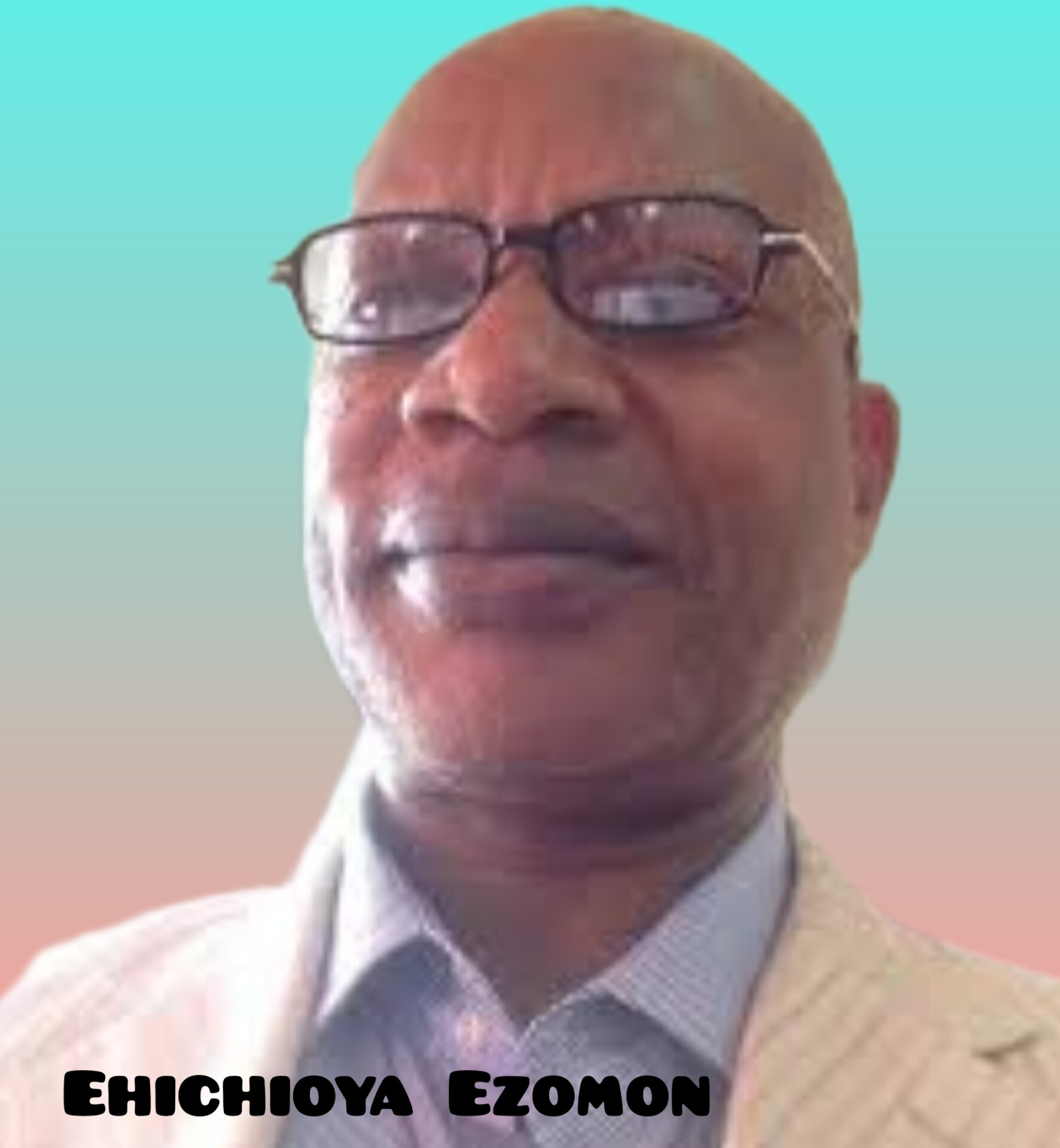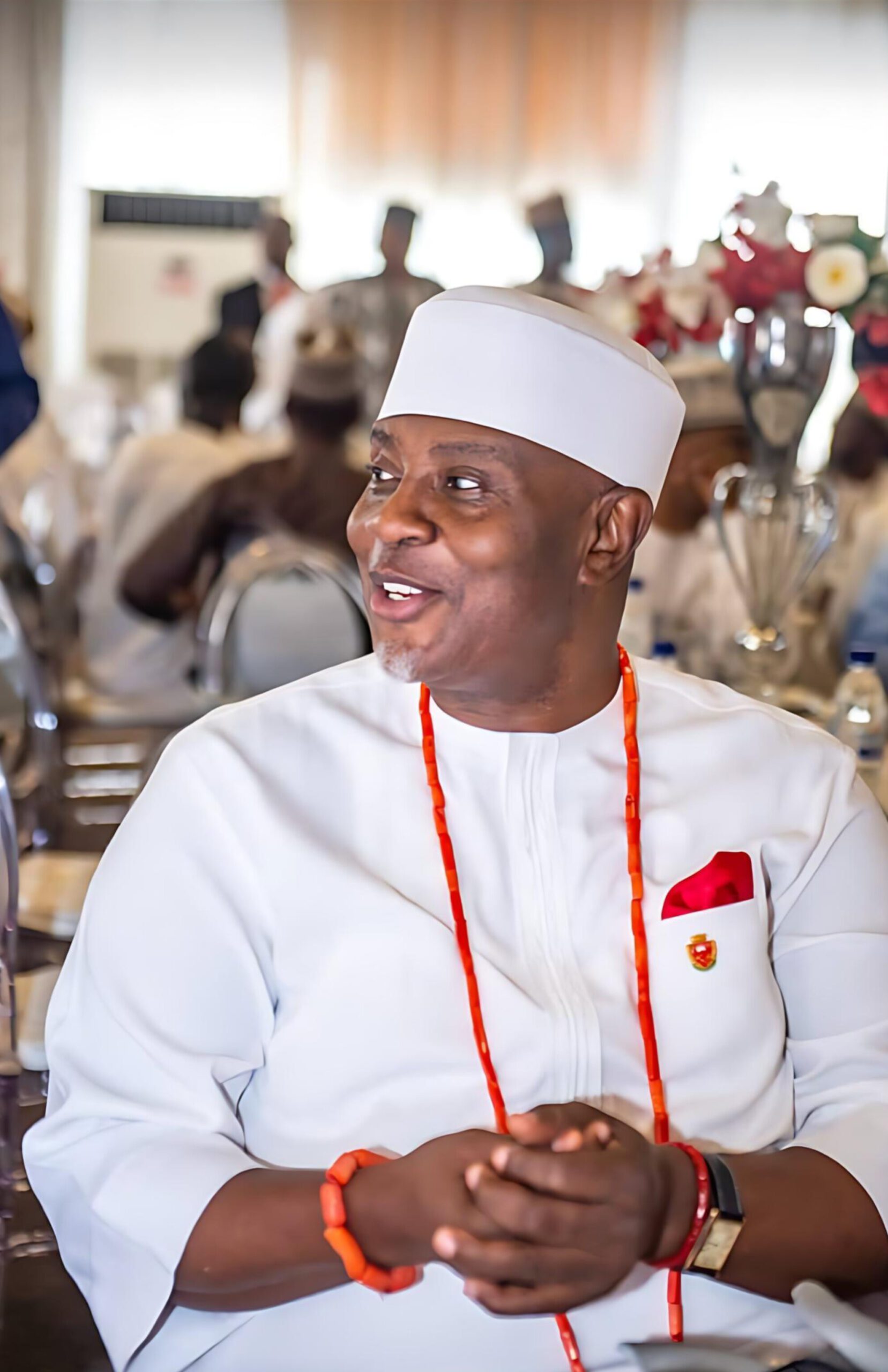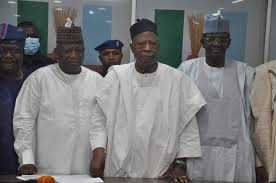By Prof Mike Ozekhome, SAN, CON, OFR, FCIArb, LL.D
INTRODUCTION
Is Inspector-General of Police (IGP) Kayode Egbetokun legally recognised as such under our extant laws, or is he but a pretender to the throne (office of the IGP)? I shall attempt in this writeup to answer this question. This is because there has been a raging controversy over the continued stay in office of Inspector General of Police (IGP), Kayode Egbetokun, despite the fact that he had in September, 2024, attained the mandatory retirement age of 60 years as stipulated by the Nigerian Civil Service Rules.

This unusual occurrence in the annals of the Civil Service in Nigeria has sparked widespread ruckus and debate over conflicting provisions in the Police Act (as amended) regarding retirement age and tenure duration of a public servant in Nigeria, particularly the office of the Inspector General of Police, as provided for in the Civil Service Rules.
For instance, while the extant Police Act (as amended) and Rule 020810 of the Federal Government Public Service Rules stipulates in section 18(8) that police officers are to retire at 60 years or after 35 years of service (whichever is earlier in time), a new section which was inserted by the law makers in the amended Police Act guarantees a four-year term for the IGP, irrespective of the earlier provisions of the Police Act and Civil Service Rules.
THE CONTROVERSY
Section 18(8) of the old Act provides that every police officer shall, on recruitment or appointment, serve in the Nigeria Police Force for a period of 35 years or until he attains the age of 60 years, whichever is earlier. The new amended section 18(8)(a) provides that notwithstanding the provisions of section 18(8) of the section, any person appointed to the office of Inspector General of Police shall remain in office until the end of the term stipulated in the letter of appointment in line with the provisions of Section 7(6) of the Act
From the provisions of the old Police Act, it was expected that IGP Egbetokun, who was born on September 4, 1964, and had reached the age of 60 by September 4, 2024, would under Section 18(8), have proceeded on to retirement.
However, section 7(6) provides for a definite four-year tenure for the IGP, creating a legal ambiguity between the general retirement provisions and the specific tenure of the IGP. It was to address this inconsistency that the National Assembly passed the Police Act (Amendment) Bill 2024.
THE NEW AMENDMENT TO THE POLICE ACT
The executive bill passed by both the green and red chambers on the same day paved way for a new section 18(8)(A) of the Police Act to enforce the existing section 7(6) of the Act. This amendment clarifies that the IGP is entitled to a four-year tenure, regardless of the general retirement age or years of service limitations. The Police Council and president Bola Ahmed Tinubu gave their imprimatur.
It is based on this that IGP Egbetokun is today legally permitted to continue serving in the capacity of the Head of the Nigeria Police Force until 2027, when he would be completing his four-year term as contained in his appointment letter signed by President Bola Ahmed Tinubu who superintends over the Nigeria Police Force under sections 214- 215 of the Constitution of the Federal Republic of Nigeria 1999 (as amended).
THE RAGING DEBATE
As was expected, the extension of IGP Egbetokun’s tenure by the NASS by the passage of the executive bill to that effect has elicited mixed reactions from Nigerian. While some hailed the extension, others expressed concerns that extending the IGP’s tenure beyond the traditional retirement age could lead to stagnation within the Police Force and potentially impact internal security dynamics. They further argued that regular leadership changes are essential for maintaining an effective security architecture.
To the latter however, the NPF has clarified that the approval of the IGP’s four-year tenure is not an extension but a proper application of the extant law governing the office of the IGP and therefore aligns with the provisions of the amended Police Act.
HOW ACTIVIST OMOYELE SOWORE STIRRED THE HORNET’S NEST
Although there were initial underground discontent within the Force over Egbetokun’s extension, it was Omoyele Sowore, a vocal human rights activist and former presidential candidate of the African Action congress (AAC), who successfully stirred the hornet’s nest and initiated intense public debate when he challenged the legality of IGP Egbetokun’s extended tenure by calling him “Illegal IGP”.
Sowore contended that Egbetokun’s continued service beyond the mandatory retirement age of 60 after completing his 35 years in service was unlawful. He therefore labeled Egbetokun as an “illegal IGP” in public statements and social media posts. This dispute has led to legal actions, with Sowore currently facing charges for, amongst others, allegedly using his social media platform to refer to Egbetokun as an “illegal IGP”.
THE POLICE REPLIES
In response, the Nigeria Police Force refuted Sowore’s claims, asserting that IGP Egbetokun’s appointment and tenure are legally sound. In a press release issued by the Force Spokesperson, ACP Muyiwa Adejobi, he cited the Police Act, 2020 (as amended in 2024), which stipulates a four-year term for the IGP, regardless of age or years of service. The police emphasised that Egbetokun’s appointment was duly ratified by the Police Council and confirmed by the Presidency, validating his tenure from October 31, 2023, to October 31, 2027.
AG FAGBEMI, SAN WEIGHS IN
The Attorney General of the Federation and Minister of Justice, Prince Lateef Fagbemi (SAN), also joined the fray on the legality of Egbetokun’s continued stay in office, referencing the amended Police Act, which allows the IGP to serve a full four-year term irrespective of the retirement age.
In his clarification, he said: “The continuous stay in office of the Inspector General of Police, Kayode Egbetokun, is legal and lawful. The appointment of Egbetokun which took effect from 31st day of October, 2023 would have come to an end on his attainment of 60 years of age on 4th day of September, 2024.
“However, before his retirement age, the Police Act was amended to allow the occupant of the office to remain and complete the original four-year term granted under Section 7 (6) of the Act, notwithstanding the fact that he has attained the age of 60 years. This has therefore, statutorily extended the tenure of office of Egbetokun to and including 31st day of October, 2027, in order to complete the four-year tenure granted to him”, Fagbemi argued.
DR.WAHAB SHITTU’S POSITION
Cerebral doctor of laws, Wahab Shittu, SAN, did, with admirable erudition, a seminal analysis of the laws and issues involved in the IGP’s tenure – the Constitution, the Police Act (as amended) and the Federal Government Public Service Rules. He came to the irresistible conclusion that it is the 2024 amended Police Act that governs the IGP’s tenure. I totally share his opinion. There is nothing, howsoever and whatsoever, in the Police Act (as amended) that derogates from the provisions of sections 214, 215 and 216 of the 1999 Constitution. They are mutually exclusive.
DR TONYE CLINTON JAJA’S THESIS
Of course the clarification by the AGF instead of dousing the tension only served to throw up more opposition and questions. Among those who countered the AGF’s position is Dr. Tonye Clinton Jaja, who in an open letter to the AGF challenged the legality of the tenure extension.
According to him, the extension which was based on the amended Police Act 2024, is unconstitutional because the IGP’s office is a creation of the 1999 Nigerian Constitution, and any changes to its tenure must be made through a constitutional amendment rather than an ordinary Act of the National Assembly.
In his four point arguments, he first posited that the IGP’s office is governed by the Constitution and not the Police Act. According to him, sections 214, 215, and 216 of the 1999 Nigerian Constitution (as altered) establish the office of the IGP and govern appointments, tenure, and control of the Nigeria Police Force. Therefore, he argued, any alteration to the IGP’s tenure must come only through a formal constitutional amendment; not an amendment to the Police Act.
He quoted section 215(1) of the 1999 Constitution which states that “There shall be – (a) an Inspector-General of Police who, subject to section 216(2) of this Constitution shall be appointed by the President on the advice of the Nigeria Police Council from among serving members of the Nigeria Police Force.”
Thus, he said since the Police Act is subordinate to the Constitution, any provision in the 2024 amendment that contradicts the Constitution is null and void under Section 1(3) of the 1999 Constitution, which states: “If any other law is inconsistent with the provisions of this Constitution, this Constitution shall prevail, and that other law shall, to the extent of the inconsistency, be void.”
In his second argument, he posited that the retirement age for the IGP cannot be extended without amending the constitution. Dr. Jaja referenced the Fifth Alteration Act No. 37 of June 8, 2023, where the Constitution was amended to adjust the retirement age for judicial officers. He therefore argued that since the IGP’s office is also created by the Constitution, the same legal process—constitutional amendment—must be followed to change the retirement age or tenure of the IGP.
Thirdly, he highlighted the Public Service Rules 2021 (as amended), under which the compulsory retirement age for public servants, including police officers, is 60 years or 35 years of pensionable service, whichever comes first. Dr Tonye noted that since the Police Act, 2020, classified police officers as public servants, the IGP is therefore bound by the same retirement rules.
Tonye went further to support his claim with case law, citing Olaniyan v. University of Lagos (1985) 2 NWLR (Pt. 9) 599 and Shitta-Bey v. Federal Public Service Commission (1981) 1 SC 40, where the courts affirmed that public service appointments derive authority from the Constitution and cannot be arbitrarily altered by ordinary legislation.
Finally, he referenced the Supreme Court’s Position on Constitutional Supremacy in Attorney-General of Bendel State v. Attorney-General of the Federation (1982) NCLR 1, which reaffirmed that any law inconsistent with the Constitution is invalid. By this principle, he said the provision in the Police (Amendment) Act, 2024, extending the IGP’s tenure beyond 60 years is unconstitutional.
While charging the AGF to reconsider his stance, Dr Tonye said if they insist on defending the Police Act’s tenure extension, then ALDRAP will file a lawsuit at the National Industrial Court of Nigeria to seek a judicial ruling on the matter. This is just as he reiterated that without a constitutional amendment, the IGP must retire upon reaching 60 years of age, in accordance with the Constitution and established public service rules.
HOW THE POLICE SERVICE COMMISSION ‘S INTERVENTION ESCALATED THE DEBATE
Instead of dousing the tension generated by the thorny issue, the approval by the Police Service Commission (PSC) for the immediate retirement of senior police officers who are either over 60 years old or have completed 35 years of service, has only served to draw public ire against the IGP, who they alleged was removing likely successors.
In a statement by Ikechukwu Ani, head of Press and Public Relations of PSC, the decision to retire those senior officers was made during the PSC’s first extraordinary meeting on Friday 31st January, 2025.
MY TAKE; MY POSITION
I have carefully and deliberately put forward various views and arguments (proponents and opponents) to open up the issues involved which are both constitutional and statutory. As attractive and brilliant as the opponents’ views are, I humbly beg to differ. For the avoidance of doubt, IGP Egbetokun’s continuous stay in office is legal and is in line with the provisions of the Constitution and the Police Act as amended in 2024, which allows the occupant of the office (Egbetokun) to enjoy a term of four years certain effective from the date of his appointment as IGP, in this case, 31st day of October, 2023. This advisory is necessary for the kind guidance of the general public and stakeholders. Meanwhile, I believe it would have been much better and contextual if the AGF had put forward this sole ground of the amendment to the Police Act as being enough justification for an extension to the tenure of Kayode Egbetokun as IGP, without more.
It is true that IGP Egbetokun has crossed the retirement age of 60 years stipulated for all civil servants including those in police and the military. This is going by the existing judgement of Justice Fatun Riman of the Federal High Court in Awka, Anambra State, delivered in May, 2023, which sacked the previous IGP, Usman Akali-Baba, from office after President Muhammadu Buhari had extended his tenure after the officer reached the statutory retirement age of 60 years. Riman held then that IGP Usman’s continued stay in office was “unlawful and unconstitutional”, insisting that the IGP was an “illegal” occupant of the office of IGP. According to the ruling in the judgment, among others, the court held that only an officer within the listed rank, with four years in service, can be appointed as IG of Police, not one with less than four years to serve. I had weighed in then, arguing that his tenure having expired, he could no longer continue to stay in office.
Accordingly, Sowore and others may well be correct in their interpretation to infer that the current IGP is “illegal”. The IGP, Kayode Egbetokun, had just 1 year and 1 month left in service when Tinubu appointed him as IGP. This makes the appointment, it appears on the face of it, contrary to the provisions of the Police Act, 2020, as it apparently violated the existing legal position espoused by the FHC, Awka. The legality or otherwise of Egbetokun as IGP is however now governed by a new template vista opened up specifically by the NASS’ amendment that occurred in 2024 to change the entire texture and scenario of the IGP’s tenure. True enough, the “lex lata” of a law (the law as it is) is quite different from the “lex ferenda” of that law (the law that should be). One is real; the other theoretical. The former (lex lata) is the new amendment to the Police Act which can only be upturned by a competent court of law (lex ferenda). See NFP & ORS V. POLICE SERVICE COMMISSION & ANOR (2023) LPELR-60782(SC). The apex court in this case held that alterations of laws can only be done by the legislature, specifically the NASS, or a competent court of law according to the provisions of the Constitution. This is precisely what the NASS did with the 2024 amendment to the Police Act.
My take on this debate therefore is that the Police Act, 2020 (as amended in 2024) is the only extant law governing Egbetokun’s appointment and tenure of office. It remains so until it is successfully challenged and a judicial interpretation upturns it. The entire Act or its provisions including amendments as enacted by the NASS remain constitutional, legal and valid for all time until pronounced otherwise by the courts.
I have read with calmness and deep research the argument that an extension of IGP’s tenure can only be done through the Constitution. No. Rather, any fault inherent in the Police Act (as amended), if there be any, can only be set aside by a competent court of law. It is therefore not correct to argue that any alteration to the IGP’s tenure can only be made through an amendment of the 1999 Constitution vide section 9 thereof. The Cases of OLANIYAN V. UNIVERSITY OF LAGOS (SUPRA); SHITTA-BEY V. FEDERAL PUBLIC SERVICE COMMISSION (SUPRA); and AG OF BENDEL V. AG OF FEDERATION (SUPRA) cited by some of the proponents are all inapplicable. The facts, circumstances, events and issues leading to them are radically different from the present Egbetokun case. As held by the Supreme Court in OLADIRAN V STATE (2023) LPELR-60006 (SC), “each case is only an authority for what it decides, and nothing more”. Nowhere in the entire sections 214, 215 and 216 of the 1999 Constitution is the tenureship of the IGP provided or discussed.
While section 214 deals with the “Establishment of Nigeria Police Force”; section 215 merely deals with the “Appointment of the IGP and Control of the Nigeria Police Force”; and section 216 deals with the “Delegation of Power to the Inspector-General of Police”. There is nowhere the issue of the IGP’s tenure is mentioned. There is nothing whatsoever the amended Police Act that contradicts or conflicts with the provisions of the Constitution directly or indirectly such as to invoke section 1(3) which states that “If any other law is inconsistent with the provisions of this Constitution, this Constitution shall prevail, and that other law shall to the extent of the inconsistency be void.” We must therefore have to resort to the Police Act (as amended) and the Federal Government Public Service Rules for direction.
THE AMENDMENT TO THE POLICE ACT ADMITS OF NO AMBIGUITY
Section 7(6) of the Police Act (as amended) is as clear as a whistle or crystal, that: “the person appointed to the office of the Inspector-General of Police shall hold office for four years”. This alteration was no doubt a legislative intervention by the NASS to bury previous doubts and controversies regarding the exact nature of the IGP’s tenure; ambiguity that led to judicial intervention in the Shitta-Bey v. Federal Public Service Commission case.
It must be emphasized that section 7(6) of the amended Police Act is a section that derives from a Specialized Act that specifically governs the IGP’s tenure. It therefore takes precedence over Rule 020810 of the Federal Government Public Service Rules which provides that “the compulsory retirement age for all grades in the service shall be 60 years or 35 years of pensionable service whichever is earlier”. A golden rule of statutory interpretation states that when there is a conflict between two statutes, one general and the other specific, the specific statute prevails over the general one (“lex specialis derogat legi generali”).
THERE IS NO CONFLICT WHATSOEVER BETWEEN THE AMENDED POLICE ACT AND THE 1999 CONSTITUTION
The argument that the Fifth Alteration Act No. 37 of June 8, 2023, altered the Constitution to adjust the retirement age for judicial officers is actually in favour of and not the IGP, for if the legislature had so intended to include the IGP, it would have done so specifically. The principle of “expressio unius est exclusio alterius” (Latin for the expression of one thing excludes the other) applies here. See AG LAGOS STATE v. AG FEDERATION & ORS (2014) LPELR-22701 (SC); EHUWA v. ONDO STATE INDEPENDENT ELECTORAL COMMISSION & ORS (2006) LPELR-1056(SC) and MATARI & ORS v. DANGALADIMA & ANOR (1993) LPELR-25714(SC).
Thus, while Nigerians and others are free to voice their concerns on the alleged illegality or otherwise of the continued stay in office of IGP Kayode Egbetokun, such claims must however be brought before the judiciary for adjudication if the intention is indeed to ensure due process and curb executive recklessness. Until such needful is done, Egbetokun remains and will continue to remain in and enjoy the office of IGP till a judicial interpretation of the conundrum is available to set it aside. As regards the title of this piece, “Is IGP Egbetokun a pretender to the throne?”, my firm answer is that he is not. He is legally, constitutionally and properly occupying the position of the Inspector-General of Police of the Nigeria Police Force.
CONCLUSION
WHAT IGP EGBETOKUN MUST NOW DO
Having argued that the 1999 Constitution and the Police Act as amended support the IGP’s continued stay in office, I would however advise the IGP to immediately drop the charges against Sowore which are largely predicated on section 24 of the Cybercrimes (Prohibition, Prevention, etc) Act, 2015. This is because Sowore merely exercised his right to “freedom of expression, including freedom to hold opinions and to receive and impart ideas and information without interference”. This is espoused in section 39(1) of the 1999 Constitution, notwithstanding the restrictions placed on the section by section 45(1) to the effect that “nothing in sections 37, 38, 39, 40 and 41 of this Constitution shall invalidate any law that is reasonably justifiable in a democratic society ….in the interest of defence, public safety, public order, public morality and public health “. I believe, based on my piece of advice anon, it will now amount to sheer wasteful venture and sheer academic exercise to explore whether or not Sowore ‘s criticism of the IGP as “Illegal IGP” falls within any of these circumscribing strictures placed on section 39(1). Withdrawing and discontinuing the charges against Sowore will undoubtedly douse the present needless ruckus, brouhaha and tension generated by this issue. Pursuing the criminal charges will add no value to the system nor to constitutional democracy that we practise. I have always believed we should build strong institutions and not strong men. I am firmed up in this my candid piece of advice by the famous quote of an author that remains anonymous: “If you are right, there is no need to get angry. And if you are wrong, you have no right to be angry”. Either way, there is no need for IGP Egbetokun to be angry or continue the charges against Sowore. My humble submission.




